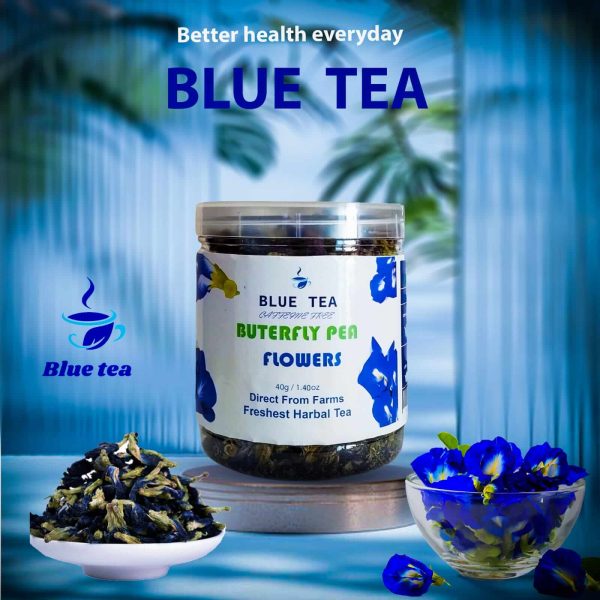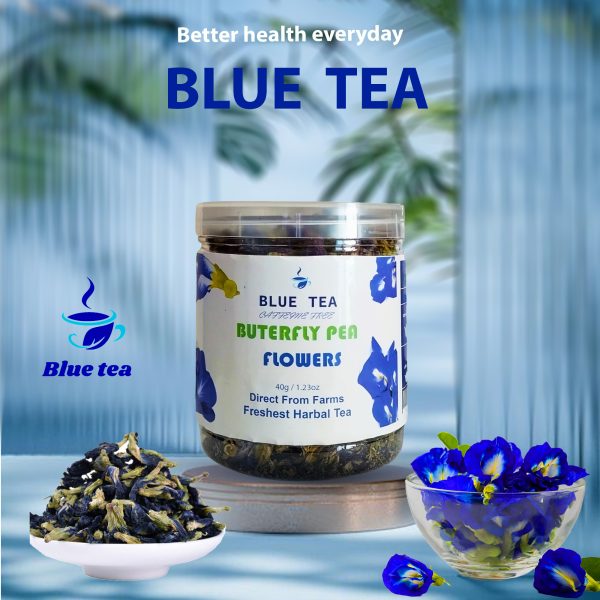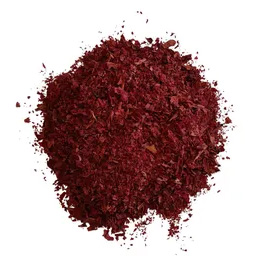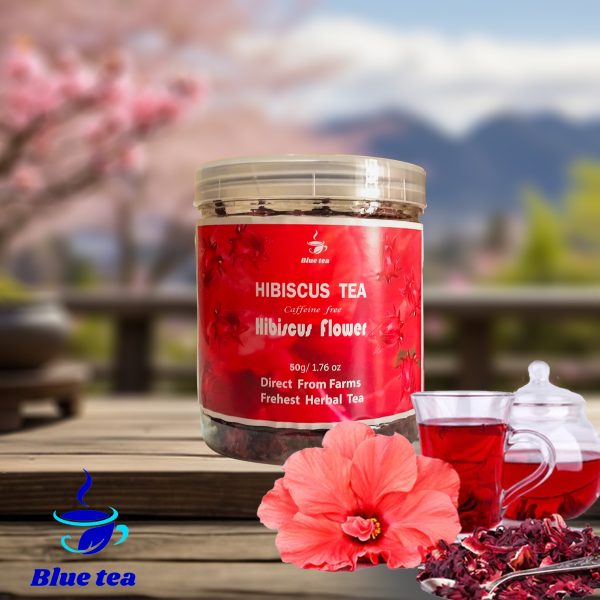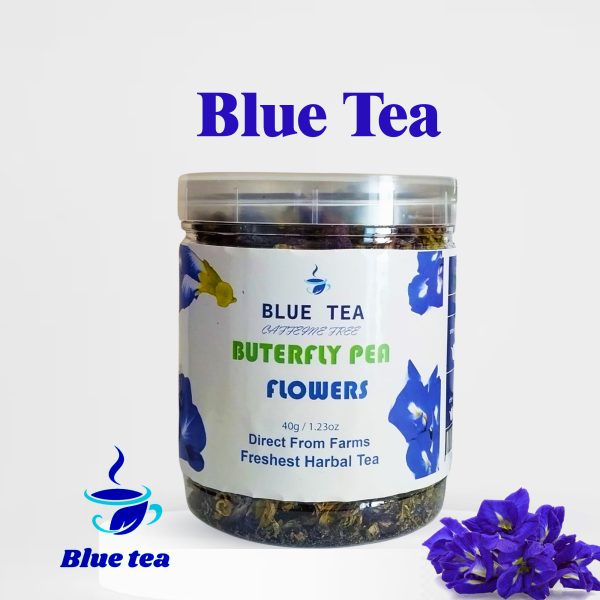
“Blue tea,” also known as butterfly pea flower tea, is a type of herbal tea made from the dried flowers of the Clitoria ternatea plant. It is renowned for its striking blue color, which is derived from the anthocyanin pigments present in the flowers. When mixed with acidic ingredients like lemon juice, the tea can change color to purple or even pink, adding to its visual appeal.
Blue tea has gained popularity not only for its vibrant hue but also for its potential health benefits. It is rich in antioxidants and is believed to have various medicinal properties, including improving cognitive function, reducing anxiety, and promoting overall well-being. Additionally, some studies suggest that the tea may have anti-inflammatory and anti-diabetic effects, although further research is needed to confirm these claims.

In recent years, blue tea has become a trending topic in the health and wellness community, with many people incorporating it into their diets as a natural remedy or simply for its aesthetic appeal. It has also found its way into the world of food and beverage, being used to color various dishes, cocktails, and desserts.
-
Rich in Antioxidants: Blue tea is packed with antioxidants, such as flavonoids, which help combat oxidative stress in the body. Antioxidants are essential for neutralizing free radicals and reducing the risk of chronic diseases like heart disease and cancer.
-
Anti-inflammatory Properties: Compounds found in blue tea may possess anti-inflammatory effects, which can help reduce inflammation throughout the body. Chronic inflammation is linked to various health conditions, including arthritis, diabetes, and heart disease.

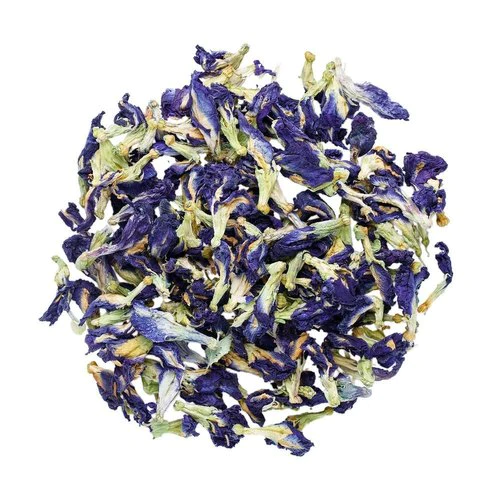
4. May Aid in Weight Management: Blue tea is naturally low in calories and caffeine-free, making it a healthy alternative to sugary beverages. Some studies suggest that blue tea may help support weight management by promoting satiety and reducing calorie intake.
5. Rich in Vitamins and Minerals: Blue tea contains essential vitamins and minerals, including vitamin C, vitamin A, iron, and calcium, which are vital for overall health and well-being. These nutrients play key roles in immune function, bone health, and skin health.
6.Potential Anti-diabetic Effects: Preliminary research indicates that blue tea may help regulate blood sugar levels and improve insulin sensitivity, making it potentially beneficial for individuals with diabetes or those at risk of developing diabetes.
7. Hydration: Like other herbal teas, blue tea is hydrating and can contribute to overall fluid intake, which is essential for maintaining proper bodily functions and supporting overall health.
While blue tea offers these potential health benefits, it’s essential to consume it as part of a balanced diet and healthy lifestyle. Additionally, more research is needed to fully understand the mechanisms behind these effects and to determine optimal dosage and usage. As with any herbal remedy, it’s advisable to consult with a healthcare professional before incorporating blue tea into your wellness routine, especially if you have any existing health conditions or concerns.
-
Blue Tea
Blue Tea-Grade A Butterfly Pea Flower Tea, 100% Natural organic Tea 40Gm. (150 Cup Tea)
Rated 5.00 out of 5৳ 450.00 Order Now -
Blue Tea
Blue Tea-Grade A Butterfly Pea Flower Tea, 100% Natural organic Tea 40Gm. (150 Cup Tea)
Rated 5.00 out of 5৳ 500.00Original price was: ৳ 500.00.৳ 450.00Current price is: ৳ 450.00. Order Now -
Himalayan Rhododendron
Dried Himalayan Rhododendron Flower | Roza azalea Flower Dried | Buransh Flower
Rated 0 out of 5৳ 500.00Original price was: ৳ 500.00.৳ 450.00Current price is: ৳ 450.00. Order Now -
Hibiscus Rose Tea
Hibiscus Rose Tea. (50Gm.)100% Natural organic Tea 40Gm. (150 Cup Tea)
Rated 0 out of 5৳ 500.00Original price was: ৳ 500.00.৳ 450.00Current price is: ৳ 450.00. Order Now -
Blue Tea
Blue Tea-Grade A Butterfly Pea Flower Tea, 100% Natural organic Tea 40Gm. (150 Cup Tea)
Rated 5.00 out of 5৳ 500.00Original price was: ৳ 500.00.৳ 450.00Current price is: ৳ 450.00. Order Now

